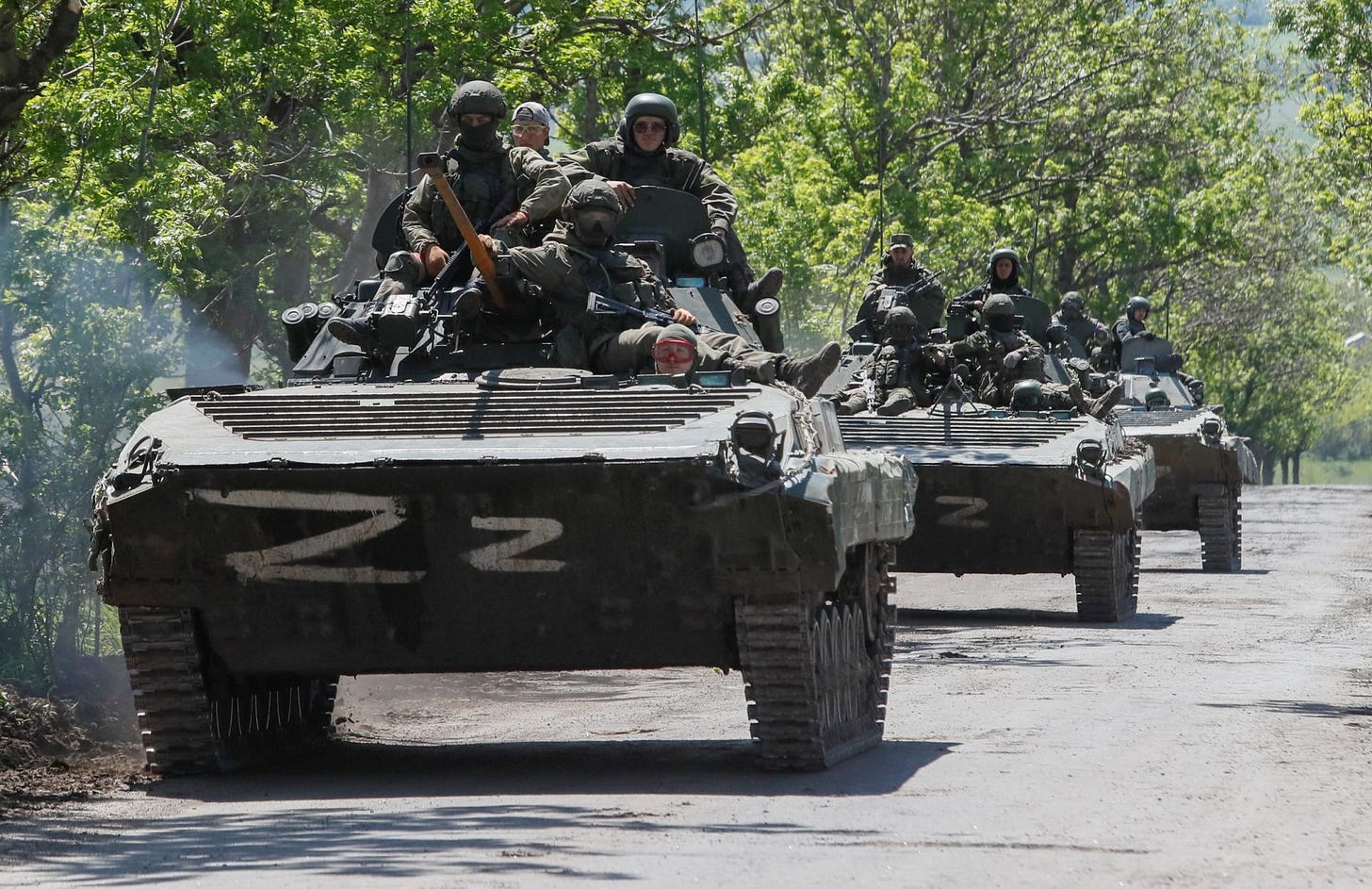Ukraine and Multiculturalism
Russia and Ukraine are incredibly similar, and yet conflict was inevitable [2 Minute Read]
Written by Percy Spender, find more of his content on 𝕏 @PercySpender
In every conflict, no matter the location, period in history or particularities of the warring Nations the underlying motive, when all jingoism and propaganda boiled away is difference. Although difference does not necessitate armed conflict, conflict would not arise were difference absent. Whether this be an irreconcilable difference in culture, the militant dedication to different Gods, a gaping difference in access to natural resources or strategic locations - difference creates opportunity for disagreement and conflict.
The War in Ukraine is no exception. Underlying all the events that have unfolded since Russian President Vladimir Putin declared a special military operation in February this year is the same fault-line beneath so many conflicts in human history, two peoples with too much difference are crammed too close together. And yes, this is despite the fact that Ukrainians and Russians share an overwhelming amount of their culture, history, language, traditions and values. The imbalance between the two nation’s military capabilities, administration, geographical location and the relatively tiny amount of history that has driven a wedge between the nations have created a situation where war was considered necessary.
Further, if you think the difference between Russia and Ukraine is laughable, just wait until you hear about the sharp divide that runs between the southeast and northwest of Ukraine. Despite once being within the same nation, various territories in Ukraine’s southeast this year voted to split from Ukraine’s Northwest to join Russia.
The United States and NATO powers have exploited this natural friction as a power move against the Russian state. This is a feature of great power politics, and the West has a history of meddling in conflicts to maintain the status quo in Europe and in Russian, such as the 1853 Crimean War.
The fact that this fissure existed prior to NATO involvement is an argument against multiculturalism. Why didn’t these societies simply become a cosmopolitan melting pot living in harmony, peace and prosperity? What lead Ukraine to banning the Russian language? The differences between Russia and Ukraine are minuscule - so much so that portions of the Ukrainian SouthEast joined Russia without any meaningful changed! In light of this, how can Western leaders expect positive outcomes from our multicultural experiment in which peoples with severe and pronounced cultural differences are bought together?
To anyone paying attention, the impending Ukraine/Russia-style culture clash in the West is obvious, just as it was to those living in Ukraine. As early as 1992, many were able to predict the coming Russia-Ukraine conflict due to the escalation in Crimea:
Western media loves to repeat Putins quote when he stated that, “the fall of the Soviet Union was the greatest geopolitical catastrophe of the 20th century.” However, perhaps to the surprise of many in the West, many Russians share this sentiment with their President: in the Soviet Union, if nothing else, Russia was united. In the 21st Century Russians are separated, living apart under a slew of very modern states, Ukraine being only one example. Much like the Austro-Hungarian empire, Czechoslovakia, Sudan, Yugoslavia and as of 2022, Ukraine, multiculturalism breeds conflict. Australia, and the rest of the Western world would be wise to learn this lesson from history.



